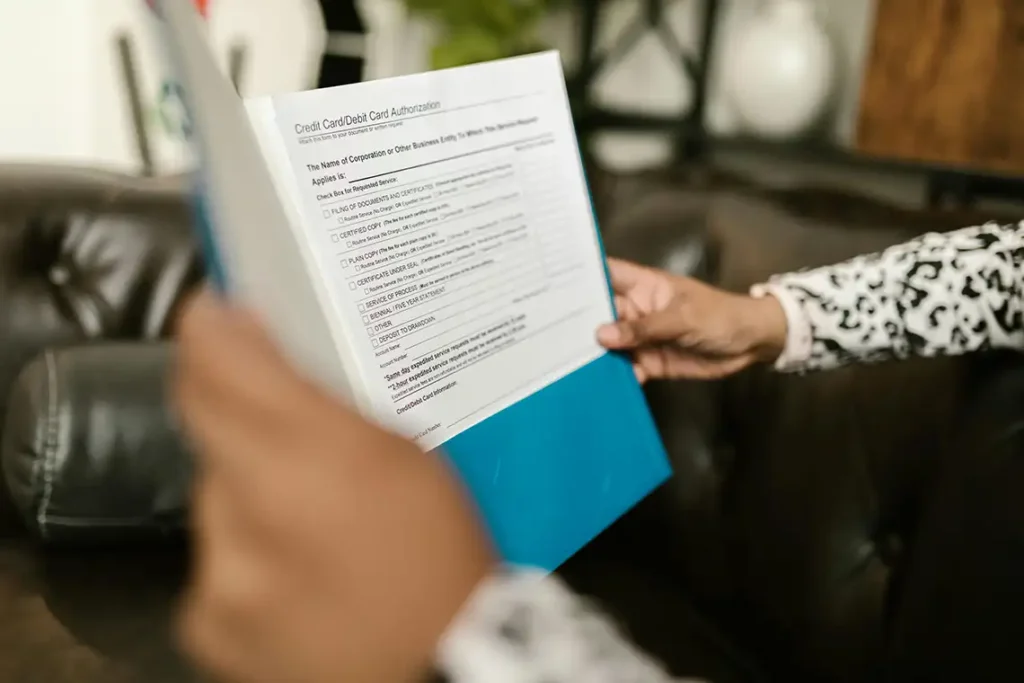
Table of Contents
- Why Financial Literacy Is Essential for Living in the EU in 2025
- Why Credit History Matters
- Getting Started: Accounts, Cards, Loans
- What to Do If You’re Rejected
- Mortgages in the EU: When and How to Apply
- Credit History from Another Country
- How to Repair or Boost Your Credit
- Alternative: Renting Without Credit History
- Conclusion + Resources
- FAQ Section
1. Why Financial Literacy Is Essential for Living in the EU in 2025

In 2025, understanding how to manage your money in Europe isn’t just helpful — it’s essential. Whether you’re a lifelong resident or a newly arrived expat, financial literacy in the EU plays a critical role in ensuring stability, security, and long-term success. From navigating complex tax systems to handling cross-border payments and digital banking platforms, the financial landscape in Europe has evolved — and so must your skills.
But why is financial education important now more than ever? Because with rising living costs, increasing debt levels, and a rapidly digitizing economy, having the right financial skills empowers you to make better decisions — from daily budgeting in Europe to investing for the future.
For expats, especially, having a solid foundation in financial knowledge helps avoid costly mistakes and improves integration into local systems. Understanding how to open the right bank account, interpret credit options, or optimize healthcare contributions can save both time and money.
Let’s explore the current challenges and opportunities that make financial literacy in the EU not just a personal asset, but a vital survival skill.
The Current State of Financial Knowledge Across EU Countries
While financial education is improving across Europe, disparities remain. Northern and Western EU countries typically report higher levels of financial literacy, while Southern and Eastern regions often face gaps in basic money management understanding. This inequality can limit access to financial services and deepen economic divides.
Recent EU studies show that many citizens still struggle with core topics like interest rates, inflation, and debt management — issues that affect everyday financial choices. This knowledge gap is even more pronounced among younger adults, lower-income groups, and new residents.
Digitalization and the Complexity of Modern Banking
The shift toward cashless economies and digital banking has added a new layer of complexity. Today, managing finances means navigating mobile banking apps, e-wallets, fintech platforms, and online identity verification — all of which require digital fluency alongside financial awareness.
For those unfamiliar with EU banking norms, this can be overwhelming. Yet, it also offers an opportunity: the more digitally connected the system, the more tools there are to help you build strong financial skills — if you know how to use them.
In short, as the financial ecosystem grows more sophisticated, so too must your literacy. The next sections will show you exactly how to build it — step by step.
2. Why Your Credit History Can Make or Break Your Financial Goals

Whether you’re applying for a mortgage, signing a rental contract, or financing a car, your credit history plays a pivotal role in your financial journey within the EU. Unlike some countries where credit is a centralized and standardized system, Europe presents a patchwork of national credit models — but one thing remains consistent: your creditworthiness matters.
Lenders, landlords, and even some employers conduct a credit check for loans or other agreements to evaluate your financial background. A weak or nonexistent credit history can limit your access to essential services, while a strong one opens doors to better interest rates, higher approval chances, and improved financial freedom. That’s why understanding how your credit profile is built, interpreted, and used is crucial.
Let’s dive deeper into how credit history works across the EU and why it should be on your radar — especially if you’re an expat or planning a big financial move.
What Is Considered a ‘Good’ Credit Score in the EU?
If you’ve searched “EU credit score explained,” you’ve likely noticed that there’s no single EU-wide credit score. Instead, each country has its own credit bureaus and rating systems:
- Germany uses SCHUFA, with a score close to 100 being ideal.
- France focuses more on negative credit events via Banque de France rather than a numerical score.
- The Netherlands and Belgium use registers that track past credit defaults.
- Spain and Italy have their own local agencies that often work similarly to FICO systems.
In general, a “good” score or history means no missed payments, no outstanding defaults, and responsible use of credit over time. For international residents, it may take time to build this record from scratch, but doing so is essential for long-term financial planning.
Credit History vs. Credit Scoring
It’s important to distinguish between credit history and credit scoring:
- Credit history refers to the detailed record of your borrowing and repayment behavior — your loans, credit cards, missed payments, and more.
- Credit scoring, on the other hand, is the numerical summary of that history, used by lenders to assess risk.
Even if a country doesn’t emphasize numerical scores, the underlying credit report is still critical. It shows how reliable you are with credit, and it follows you when you apply for new lines of credit, especially in pan-European financial systems.
Building a solid credit history takes time, but it’s a powerful tool — or obstacle — when pursuing financial goals.
👉 Want to understand the scoring side in more detail? Read our deep dive: What is credit scoring
In the EU, financial opportunity often starts with trust — and that trust is measured by your credit history. Whether you’re settling in a new country or planning for the future, investing in your financial footprint today can unlock a more secure tomorrow.
3. How to Start: From Opening a Bank Account to Getting a Loan

Starting your financial life in a new country can feel overwhelming — but it doesn’t have to be. Whether you’re relocating for work, studies, or retirement, setting up the basics — a bank account, a credit card, and possibly a loan — is your first step toward full integration. This guide walks you through exactly what you need to get started, especially if you’re a non-resident or a recent expat.
Documents You Need to Open an EU Bank Account
Wondering how to open a bank account in the EU as a non-resident? While requirements vary slightly between countries and banks, most institutions will ask for the following standard bank documents:
- ✅ Valid passport or national ID
- ✅ Proof of address (can be local or international, depending on the bank)
- ✅ Proof of income or employment (job contract, payslips, or student status)
- ✅ Residence permit or visa (if applicable)
- ✅ Tax Identification Number (TIN) from your home country
Some banks now offer non-resident banking services with simplified online onboarding, especially in countries like Germany, Estonia, and the Netherlands. Digital banks (e.g. N26, Revolut, Wise) can be a faster, more flexible alternative if you’re just arriving and need quick access to banking.
How to Get a Credit Card in Europe
Getting your first credit card in Europe can be tricky as an expat, especially if you haven’t yet built up a local credit history. To improve your chances:
- Apply through your local bank once your account is active
- Choose a secured credit card or one with a low initial limit
- Provide proof of stable income and employment
- Be ready for a credit check, depending on the country
Some digital banks and fintechs also offer starter credit cards for newcomers, which can help you begin building credit from day one.
👉 Explore options in our guide: Top credit cards for expats
What Type of Loan Should You Apply For?
Access to personal loans for expats in the EU varies, but is possible once you’ve established some financial footprint. The most common types include:
- 🏠 Personal loans — for general use (travel, emergencies, appliances)
- 🚗 Auto loans — for vehicle purchases
- 🏡 Home loans / mortgages — longer-term and more document-intensive
Before applying, check your loan eligibility based on:
- Credit history or financial background
- Residency status and length of stay
- Proof of income and employment contract
- Existing debts and monthly expenses
Many banks will also require a co-signer or guarantor if you’re new to the country or don’t yet have a solid credit record.
👉 Need more details? Read: How to get a loan as an expat
Starting your financial life in Europe may take a few steps, but each one builds toward greater independence and stability. The key is preparation — once your documents are in order and your first account is open, the rest becomes much easier.
4. What to Do If Your Credit or Loan Application Is Denied

Getting denied by a bank — whether for a loan, credit card, or even a bank account — can feel frustrating, especially if you’re new to the EU. But don’t worry. Rejection is common, and there are clear steps you can take to understand the reason, improve your profile, and try again with better chances.
Most Common Reasons for Financial Rejection in the EU
| Reason for Rejection | Explanation |
|---|---|
| Insufficient credit history | No financial track record in the local market makes it hard to assess risk |
| Low or unstable income | Banks prefer clients with consistent, documented income |
| Poor credit history | Missed payments, high debt, or defaults lower your creditworthiness |
| Incomplete or incorrect documents | Missing bank documents or ID can result in a technical rejection |
| Non-resident status | Some banks have restrictions on offering credit to non-residents |
👉 Learn more: Why applications are declined
What to Do Next If You’re Refused Credit or a Loan
If your application was rejected:
- Request the reason in writing – Under EU law, you’re entitled to know if a credit report influenced the decision
- Check your credit report – Contact the national credit bureau to review your financial profile
- Fix errors – Dispute and correct inaccurate information if needed
- Strengthen your profile – Use a secured credit card, pay bills on time, and ensure income stability
- Consider alternative lenders – Online banks and fintech lenders may have more flexible criteria for expats
How to File a Complaint Against a Bank
| Step | Where to Go |
|---|---|
| 1. File a complaint with the bank | Use the bank’s internal dispute resolution system first |
| 2. Contact a national financial ombudsman | If unsatisfied, escalate to your country’s financial complaint body |
| 3. Use FIN-NET for cross-border issues | EU-wide network for resolving financial disputes without going to court |
👉 Full guide: How to file complaints in Europe
A rejection isn’t the end — it’s an opportunity to understand, improve, and reapply with a stronger foundation. With time and strategy, you’ll be back on track to achieving your financial goals in the EU.
5. How and When to Apply for a Mortgage in the EU

Buying property in Europe is a major milestone — whether you’re relocating long-term, investing, or just planning for the future. But can expats actually get a mortgage in the EU? And can you get a mortgage without EU residency?
The short answer: yes, but with conditions. Mortgage access for non-citizens varies by country, and approval depends on several factors like income, legal status, and financial profile. This guide breaks down everything you need to know about mortgage requirements in EU countries, when to apply, and what documents you’ll need.
Mortgage Eligibility Criteria for Foreign Residents
Whether you’re a first-time buyer or seasoned investor, your mortgage eligibility in the EU is evaluated based on:
| Factor | What It Means |
|---|---|
| Residency status | Most banks require legal residency; a few allow mortgages for non-residents |
| Income level & stability | Regular salary or self-employment with EU-based or international contracts |
| Credit history | Local or international credit reports; some banks accept foreign credit proof |
| Loan-to-Value (LTV) | Typically ranges from 60–80% for expats (you cover the rest as down payment) |
| Country-specific rules | Some nations restrict non-EU buyers or require extra documentation |
📝 Want to dig deeper? Read our guide: Mortgage for migrants
Required Documents by Country (Germany, Spain, France)
The process — and paperwork — varies across the EU. Here’s a quick comparison table of required documents in the most popular destinations:
| 🇩🇪 Germany | 🇪🇸 Spain | 🇫🇷 France |
|---|---|---|
| Valid passport/ID | Passport or NIE number | Passport or residency permit |
| Residence registration | Proof of residency or visa | Proof of address in France |
| Income proof (3–6 months) | Payslips and tax returns | Last 3 payslips, latest tax notice |
| SCHUFA credit report | Bank statements (3–6 months) | French or foreign credit report |
| Property details | Purchase contract (preliminary) | Promise of sale (compromis de vente) |
| Down payment confirmation | Proof of funds | Bank statement for deposit |
👉 See detailed breakdowns:
- Mortgages without residency
- Country-specific mortgage documents
When to Apply for a Mortgage as an Expat
Timing is key. Here’s when it makes sense to apply:
- ✅ After securing long-term residency (temporary or permanent visa)
- ✅ When you have at least 20–40% of the property value as a down payment
- ✅ If your employment contract is stable, ideally with at least 6–12 months remaining
- ✅ Once your local or international credit file is clean and up to date
- ✅ Before property negotiations begin — mortgage pre-approval boosts buyer credibility
Pro Tip: Get Pre-Approved
A mortgage pre-approval helps you:
- Know your real budget
- Negotiate with confidence
- Show sellers and agents you’re a serious buyer
- Speed up final approval
Some banks offer online mortgage simulators or even remote applications — useful if you’re still outside the EU.
Applying for a mortgage for expats in the EU is a realistic goal — even without full residency — as long as you’re well-prepared. Each country has its own nuances, so do your homework, gather your documents early, and compare bank offers before signing.
🏠 Ready to explore mortgage options? Start with our country-by-country mortgage checklist
6. Does Foreign Credit History Matter in the EU?

If you’re relocating to Europe, one of the first financial questions you might ask is:
“Can I transfer my credit history to Europe?” or “Does my US credit score work in the EU?”
The short answer: not directly — but it can still help you.
While most EU banks and credit bureaus don’t automatically recognize foreign credit reports, your international financial footprint can be used to demonstrate creditworthiness, especially with proactive documentation. Here’s how to navigate foreign credit history in the EU and make it work in your favor.
Countries That Accept International Credit Reports
Some EU countries are more open than others when it comes to evaluating foreign credit history:
| Country | Accepts Foreign Credit History? | How It’s Used |
|---|---|---|
| 🇩🇪 Germany | ✅ Partially | Some banks accept US/UK reports; not part of SCHUFA |
| 🇳🇱 Netherlands | ✅ On request | Can help with renting or expat-focused banks |
| 🇫🇷 France | ❌ Not officially | French lenders rely solely on national credit data |
| 🇪🇸 Spain | ✅ Case-by-case | Private lenders may consider international profiles |
| 🇮🇪 Ireland | ✅ With documentation | Irish banks may review reports from UK/US for expats |
👉 Related read: Does foreign credit history help in Europe?
💡 Tip: Some fintech lenders and neobanks are more flexible with cross-border credit evaluation than traditional banks.
How to Prove Your Financial Reputation Abroad
If your international credit score isn’t recognized, you can still demonstrate your financial reliability through alternative methods:
| What to Show | Why It Helps |
|---|---|
| Credit report from your home country | Shows credit limits, payment history, debt ratios |
| Bank statements (6–12 months) | Proves consistent income and responsible account use |
| Rental payment history | Useful when applying for housing or mortgages |
| Employment contracts & payslips | Demonstrates income stability |
| Letters of reference from institutions | Adds personal credibility with banks or landlords |
📝 Many lenders will ask for official translations or notarized documents, especially in France, Italy, or Austria.
Can You Transfer Your Credit Score to Europe?
Strictly speaking: No, you cannot “transfer” your credit score (e.g., FICO or Experian UK) into a European credit bureau.
Each EU country uses its own national credit system — for example:
- Germany: SCHUFA
- France: FICP via Banque de France
- Spain: ASNEF
- Italy: CRIF
However, you can leverage your credit history as supporting evidence when:
- Applying for a mortgage
- Renting a flat
- Getting approved for a credit card or phone contract
- Seeking business credit
Building EU Credit From Scratch – With a Boost
Here’s how to accelerate your local credit profile while using your old history to your advantage:
| Step | Why It Works |
|---|---|
| Apply for a secured or low-limit card | Builds local history without high risk |
| Provide foreign credit report as support | Helps underwriters evaluate you more fairly |
| Use expat-friendly digital banks | Many neobanks operate across borders with lighter scoring models |
| Register for utilities in your name | Payment history can eventually help in credit applications |
Even though your foreign credit history won’t transfer 1:1, it can still give you an edge — especially in the early months of settling in the EU. Be proactive: collect, translate, and present your financial track record with clarity.
🔗 Want the deep dive? Read: Does foreign credit history help in the EU?
7. How to Repair or Improve Your Credit Score in the EU

If you’ve been denied a loan, credit card, or mortgage, don’t panic — bad credit is fixable, and improvement is very possible within the EU system. Whether you’re a resident, expat, or just starting to build financial credibility, here’s a clear, proven guide on how to fix your credit score in the EU — fast and responsibly.
Free and Paid Ways to Fix Your Credit
There are both no-cost and premium strategies available to repair bad credit in Europe. Use them together for maximum impact.
| Strategy | Free | Paid | Details |
|---|---|---|---|
| Check your credit report | ✅ | Use national credit bureaus (e.g., SCHUFA, FICP, ASNEF) | |
| Dispute inaccurate entries | ✅ | Challenge false debts, outdated info, or fraud | |
| Use a credit builder card | ✅ | Secured or prepaid cards that report to credit bureaus | |
| Set up direct debits for bills | ✅ | Ensures on-time payments — a major scoring factor | |
| Use credit monitoring tools | ✅ | Alerts you to changes, fraud, and opportunities for improvement | |
| Register utilities or rent in your name | ✅ | Consistent payments build history | |
| Work with a financial advisor | ✅ | Some specialize in credit recovery (especially helpful after bankruptcy) |
🔗 Related article: How to fix credit history in Europe
When to Dispute Credit Report Errors
Mistakes on your credit report are common and can be devastating to your score. Here’s when — and how — to act:
Common Errors Worth Disputing
- ❌ Payments marked late that were paid on time
- ❌ Accounts you never opened (fraud)
- ❌ Old debts that should be removed (expired under GDPR rules)
- ❌ Incorrect personal info (address, ID number, employer)
How to Dispute (Step-by-Step)
- Get your report from the relevant national bureau (e.g., SCHUFA in Germany, CRIF in Italy)
- Mark the error and gather supporting documents
- Submit a formal dispute via the bureau’s platform (most offer digital forms)
- Follow up within 30 days — EU law requires timely response
- Escalate to regulators if no resolution (e.g., Financial Ombudsman or Data Protection Authority)
✅ Tip: Always dispute in writing, and keep a copy of your correspondence for legal protection.
Timeline: How Long Does It Take to Boost Credit in Europe?
| Action Taken | Expected Impact Time |
|---|---|
| Correcting an error | 30–60 days after resolution |
| Using a credit builder card | 3–6 months of on-time usage |
| Paying down debt | 1–3 months depending on balance |
| Opening and managing new credit | 4–12 months for full scoring effect |
| Bankruptcy recovery | 3–6 years (varies by country) |
🧠 Remember: Credit scores in Europe aren’t centralized, so impact depends on local bureaus and bank policies.
What to Avoid While Repairing Your Credit
- 🚫 Applying for too many credit lines in a short time
- 🚫 Ignoring your credit report (check it annually at minimum)
- 🚫 Paying minimums only — try to pay more than required
- 🚫 Using over 30% of your credit limit long-term
- 🚫 Closing your oldest credit accounts (they help your average age!)
Improving your credit rating in the EU takes planning, patience, and consistency — but the system rewards responsible behavior. Whether you’re correcting mistakes or starting fresh, the steps above can help you rebuild and reach your goals.
📈 Ready to start? Explore: How to fix credit history
8. How to Rent a Home in Europe Without a Credit History

Landing in a new European country often means facing a frustrating question:
“Can I rent an apartment with no credit history in the EU?”
The good news: Yes, you can — but you’ll need to be creative and well-prepared.
Across Europe, landlords and agencies typically assess creditworthiness, but there are proven strategies to rent without credit history — especially for new immigrants, students, and first-time renters. Here’s how.
Countries That Are More Flexible With Credit
Some EU countries rely less on formal credit checks than others — instead, they prioritize employment status, references, or guarantors.
| Country | Credit Check Required? | Alternatives Accepted? |
|---|---|---|
| 🇳🇱 Netherlands | ❌ Not mandatory | Employment contract, deposit, expat-friendly agencies |
| 🇩🇪 Germany | ✅ SCHUFA preferred | Guarantor, bank statement, income proof |
| 🇫🇷 France | ✅ FICP check often required | Payslips, rental insurance, personal reference |
| 🇵🇹 Portugal | ❌ Rarely used | Deposit + proof of funds usually sufficient |
| 🇪🇸 Spain | ✅ Private landlord dependent | Guarantor or larger upfront deposit |
👉 Learn more: Rent without credit history in Europe
What to Provide Instead of a Credit Report
If you don’t have a local credit file, bring the next best thing. Here’s what landlords will often accept:
✅ 1. Proof of Income
- Recent payslips (3–6 months)
- Employment contract with salary details
- Freelance invoices or bank deposits
✅ 2. Bank Statements
- EU-based or foreign accounts
- Show regular income + ability to pay rent
✅ 3. Guarantor Letter
- Local or international (must be verifiable)
- Usually parents, employer, or sponsor
✅ 4. Larger Upfront Deposit
- Offering 3–6 months’ rent in advance may ease concerns
- Especially useful with private landlords
✅ 5. Landlord Reference
- Letter from your last landlord confirming on-time payments
- Even foreign references help establish trust
✅ 6. Proof of Residency or Visa
- Especially important in regulated markets like France or Germany
📌 Pro tip: Create a “tenant dossier” with all these documents neatly organized — it builds trust and speeds up approvals.
Quick Visual: Tenant Approval With vs. Without Credit
| With Credit History | Without Credit History |
|---|---|
| Credit report (SCHUFA, CRIF, etc.) | Proof of income + bank statements |
| Standard deposit (1–2 months) | Larger deposit (3–6 months) |
| Local rental references | Foreign landlord/employer references |
| Fast approval | May require personal interview or negotiation |
Additional Tips for First-Time Renters in the EU
- 🏡 Target private landlords — They’re usually more flexible than agencies
- 🧳 Use relocation services or expat agencies — Especially helpful for students and skilled migrants
- 📲 Search on platforms like Facebook, HousingAnywhere, Spotahome — Filter for “no credit check” listings
- ✍️ Write a tenant introduction letter — Explaining who you are, your income, and why you’re a reliable tenant
Even without a credit score, renting in the EU is 100% possible. With the right paperwork and proactive communication, you can secure housing while you build your local financial profile.
🔗 Ready to rent? Start here: Rent without credit history: full guide
9. Useful Resources and Final Tips on EU Financial Literacy

Building a stable financial life in the EU as an expat can feel overwhelming — from opening bank accounts and understanding credit systems to navigating mortgage applications or dealing with rejections.
But with the right information, tools, and mindset, you can take full control of your financial journey in Europe.
Below is a curated list of practical financial tools, EU banking help resources, and where to go if you need support or want to file complaints.
Tools to Monitor and Manage Your Finances
Whether you’re tracking your credit score, planning a budget, or managing multi-currency accounts, these tools can help:
| Tool / Platform | Purpose | Works in |
|---|---|---|
| N26 / Revolut / Wise | Mobile banking, low-fee transfers | Most EU countries |
| Mint EU / Emma | Budgeting + expense tracking | 🇬🇧 + select EU countries |
| CheckMyFile / CRIF / SCHUFA | Multi-bureau credit score monitoring | 🇩🇪 🇫🇷 🇮🇹 🇪🇸 (country-specific) |
| Monese / bunq | Expat-friendly bank accounts | Netherlands, Germany, Belgium, etc. |
| Experian EU | Credit reporting + score monitoring | 🇬🇧 + EU-adjacent services |
💡 Tip: Always use tools that support your local language, legal framework, and currency preferences.
Where to Get Official Help or File a Complaint
If you’re facing issues with credit scoring, bank rejections, or unfair practices, here are official resources to turn to:
| Institution | What They Help With | Website / Access |
|---|---|---|
| European Central Bank (ECB) | Financial education, EU-wide banking standards | ecb.europa.eu |
| National Ombudsman Services | Handling unresolved disputes with banks/lenders | Varies by country (e.g. ombudsman.europa.eu) |
| European Consumer Centres (ECC-Net) | Cross-border consumer rights, bank complaints | ec.europa.eu/consumers/ecc |
| Your Europe Portal | Legal help for moving, living, working, and banking in the EU | europa.eu/youreurope |
| Credit Bureaus (e.g., SCHUFA, CRIF, FICP) | Disputes, corrections, access to your report | Search by country |
Final Financial Literacy Tips for Expats in the EU
- ✅ Learn the rules of your host country — credit laws vary across the EU
- ✅ Check your credit report at least once per year
- ✅ Start with secure credit tools, then move toward full-featured products
- ✅ Use official resources before paying for credit repair services
- ✅ Document everything when applying for loans or disputing errors
- ✅ Never ignore a rejection — it’s a sign to improve and try again
Continue Exploring
To build stronger financial skills in Europe, check out these guides:
🔗 How to fix credit history in the EU
🔗 Top credit cards for expats
🔗 Rent without credit history in Europe
🔗 What is credit scoring in the EU?
🔗 How to file a complaint against a bank
💬 Your journey toward financial independence in Europe starts with knowledge. Stay informed, track your finances actively, and don’t be afraid to seek support — both digital and institutional.
10. FAQ
💡 What is financial literacy in the EU and why does it matter?
Financial literacy in the EU refers to the ability to understand and manage personal finances across different EU member states — including budgeting, saving, using credit responsibly, and understanding banking systems.
It’s especially important for expats who must adapt to unfamiliar tax laws, credit systems, and consumer protections.
💳 Can I open a bank account in the EU as a non-resident?
Yes, many EU banks allow non-residents to open bank accounts, although requirements vary by country. Typically, you’ll need:
1. Passport or national ID
2. Proof of address (EU or abroad)
3. Residence permit or visa (in some cases)
4. Tax Identification Number (TIN)
👉 Some digital banks like N26, Wise, Revolut, and bunq are expat-friendly and easier to set up remotely.
🧾 Does my foreign credit history count in the EU?
Generally, credit history from your home country does not automatically transfer to the EU. However:
1. Some banks may consider international credit reports or references.
2. You can build new credit by starting with secured cards, utilities, and mobile contracts.
3. Tools like Nova Credit (where available) help transfer credit data from the 4. US to certain EU lenders.
More: Does foreign credit history help in the EU?
🏠 Can I get a mortgage in Europe without EU residency?
Yes, but it depends on the country. Many EU countries allow non-residents to apply for mortgages, especially in markets like:
1. Spain – non-resident buyers are common (up to 70% LTV)
2. Portugal – banks offer mortgage deals to foreigners
3. France – stricter but possible with a solid profile
Keep in mind:
1. Higher deposit required (typically 30–40%)
2. Proof of income, creditworthiness, and tax compliance needed
3. Some banks require opening a local account
💶 How can I get a loan as an expat in the EU?
To get a personal loan as an expat, you typically need:
1. A stable job or regular income in the EU
2. Residency or a long-term visa
3. EU bank account
4. Sometimes a minimum period of local residence (e.g., 6–12 months)
Lenders will also check your local credit score, so start building it early through mobile plans, rental payments, or credit builder cards.
🔗 See full guide: How to get a loan as an expat
📘 Want to improve your EU financial literacy?
Start with these steps:
1. Learn how credit scoring works in your host country
2. Monitor your spending with budgeting tools like Emma or YNAB
3. Take free courses from the European Central Bank or national consumer portals
🔗 Explore: EU Financial Literacy Toolkit
📌 Still have questions?
Visit our full guides on Opening an EU Bank Account, Building Credit from Scratch, or Getting Mortgages Without Residency.








